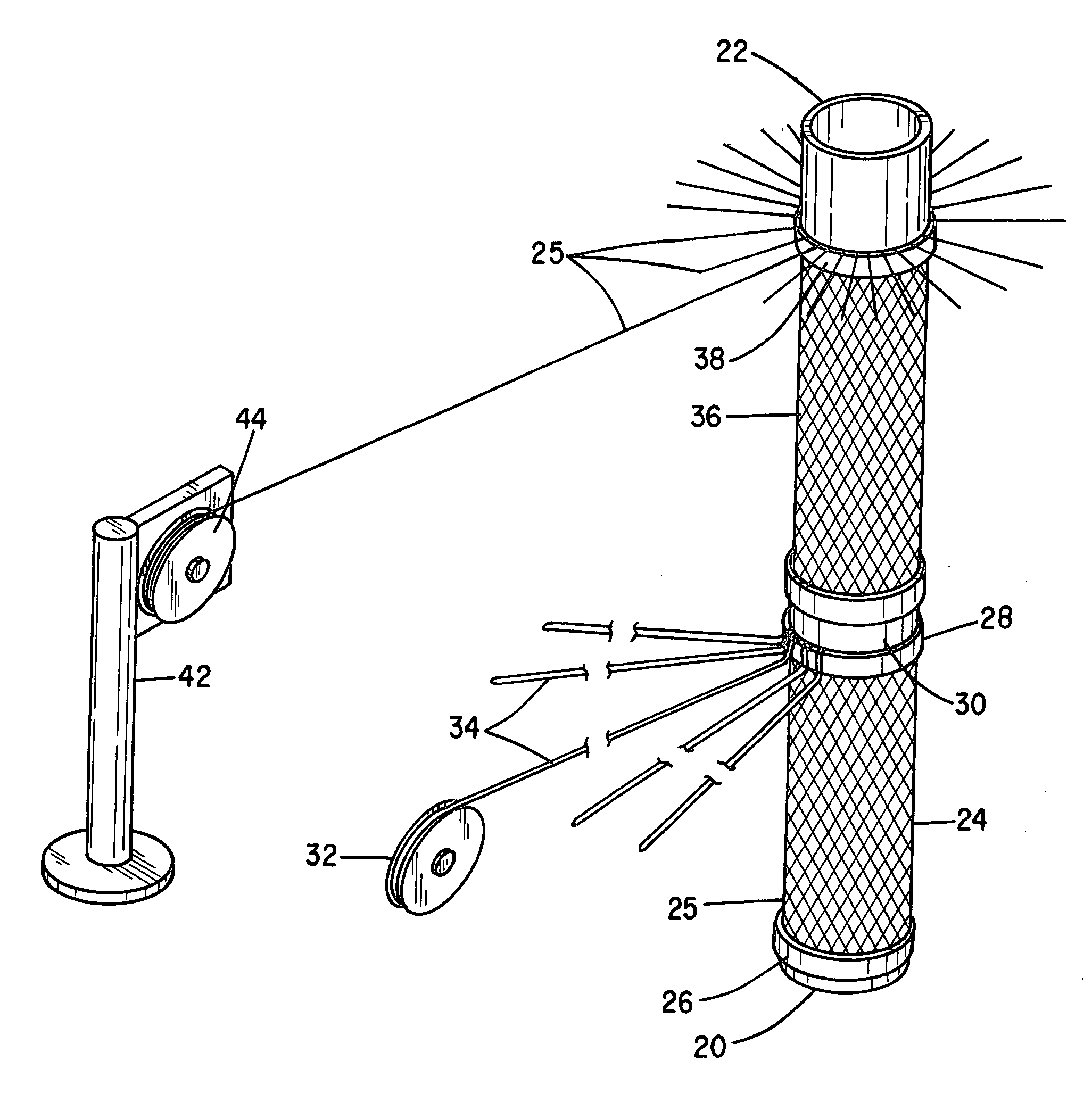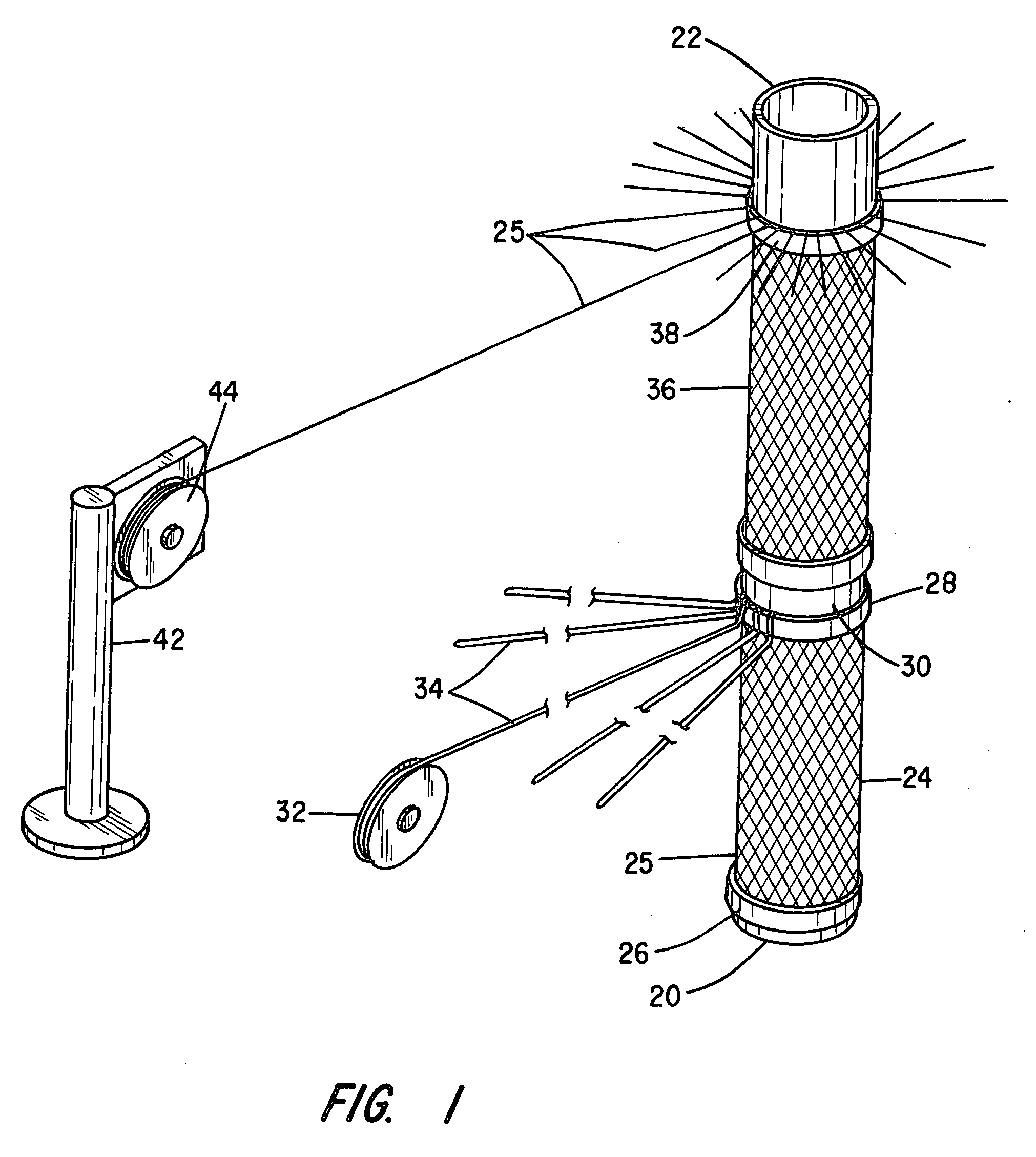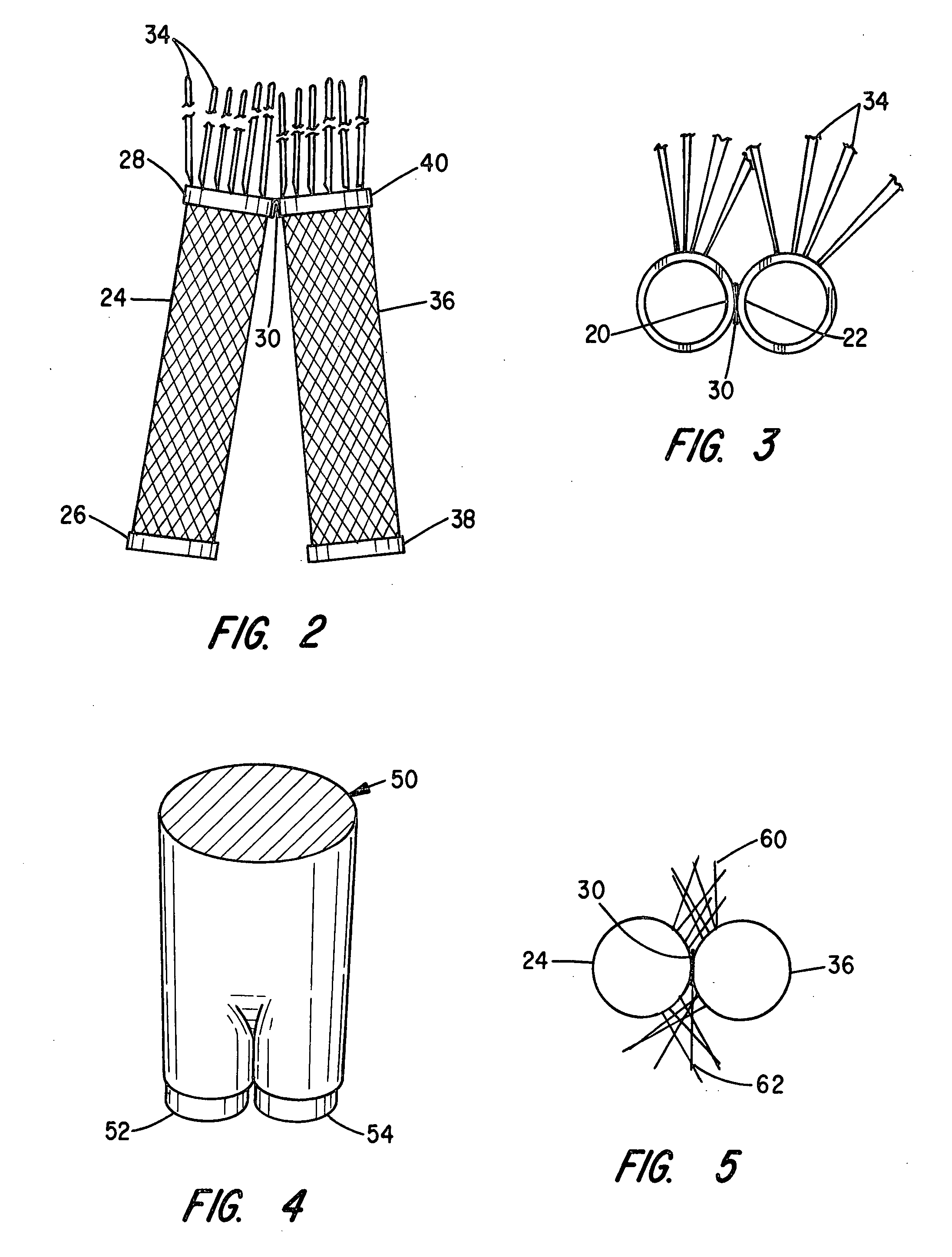Branched stent/graft and method of fabrication
a stent and graft technology, applied in the field of stents or graft devices delivered by intravascular catheters, can solve the problems of weak aneurysms bulging like balloons, low survival chances, and weak wall strength
- Summary
- Abstract
- Description
- Claims
- Application Information
AI Technical Summary
Benefits of technology
Problems solved by technology
Method used
Image
Examples
first embodiment
[0046]In a first embodiment, the distal ends of the wire loops are not cut or severed and each of the loops 34 is wound with the two wires together onto a spool for braiding the common body or trunk of the stent / graft using double strands. Thus, in the example, 28 spools of two filaments or wires each are available to be placed onto a braider that has at least 28 spool carriers.
[0047]In an alternate embodiment, the wire loops are severed toward the ends to form two wires of substantially equal length from each original loop. The two wires are wound on separate spools for placement on a braider including at least (2 times 28) or 56 spool carriers.
[0048]FIG. 4 illustrates one shape of a mandrel at 50, which may be solid or hollow, for forming the common body or trunk of the stent or graft. There are two pilot diameters or leg extensions 52 and 54 for insertion into the corresponding two-leg mandrels. The now three-part mandrel is secured together by fasteners or other known means and ...
embodiment 80
[0051]In an alternative embodiment, the severed loops on 56 individual spools of wire are braided together over the trunk mandrel 50 in FIG. 4 for the length of the trunk shown in the embodiment 80 in FIG. 7 as 82. The braiding is then stopped and the wires are taped or clamped to the mandrel. The wires leading to the spools are cut and the mandrel assembly and braided device are removed from the braider. The finished device 80 has a trunk portion braided from single filaments or wires as is shown in FIG. 7.
[0052]In the embodiment with the loop braid, the final braiding of the trunk may be accomplished on the same original 32 carrier braider used for braiding the legs, but four of the spools, i.e., every 8th spool, would be empty. However, this would cause the final device to exhibit gaps between some of the braided wires. This is not as desirable as using a braider with the exact number of needed spool carriers. The gaps can be manually spaced more evenly prior to the final device ...
PUM
 Login to View More
Login to View More Abstract
Description
Claims
Application Information
 Login to View More
Login to View More - R&D
- Intellectual Property
- Life Sciences
- Materials
- Tech Scout
- Unparalleled Data Quality
- Higher Quality Content
- 60% Fewer Hallucinations
Browse by: Latest US Patents, China's latest patents, Technical Efficacy Thesaurus, Application Domain, Technology Topic, Popular Technical Reports.
© 2025 PatSnap. All rights reserved.Legal|Privacy policy|Modern Slavery Act Transparency Statement|Sitemap|About US| Contact US: help@patsnap.com



